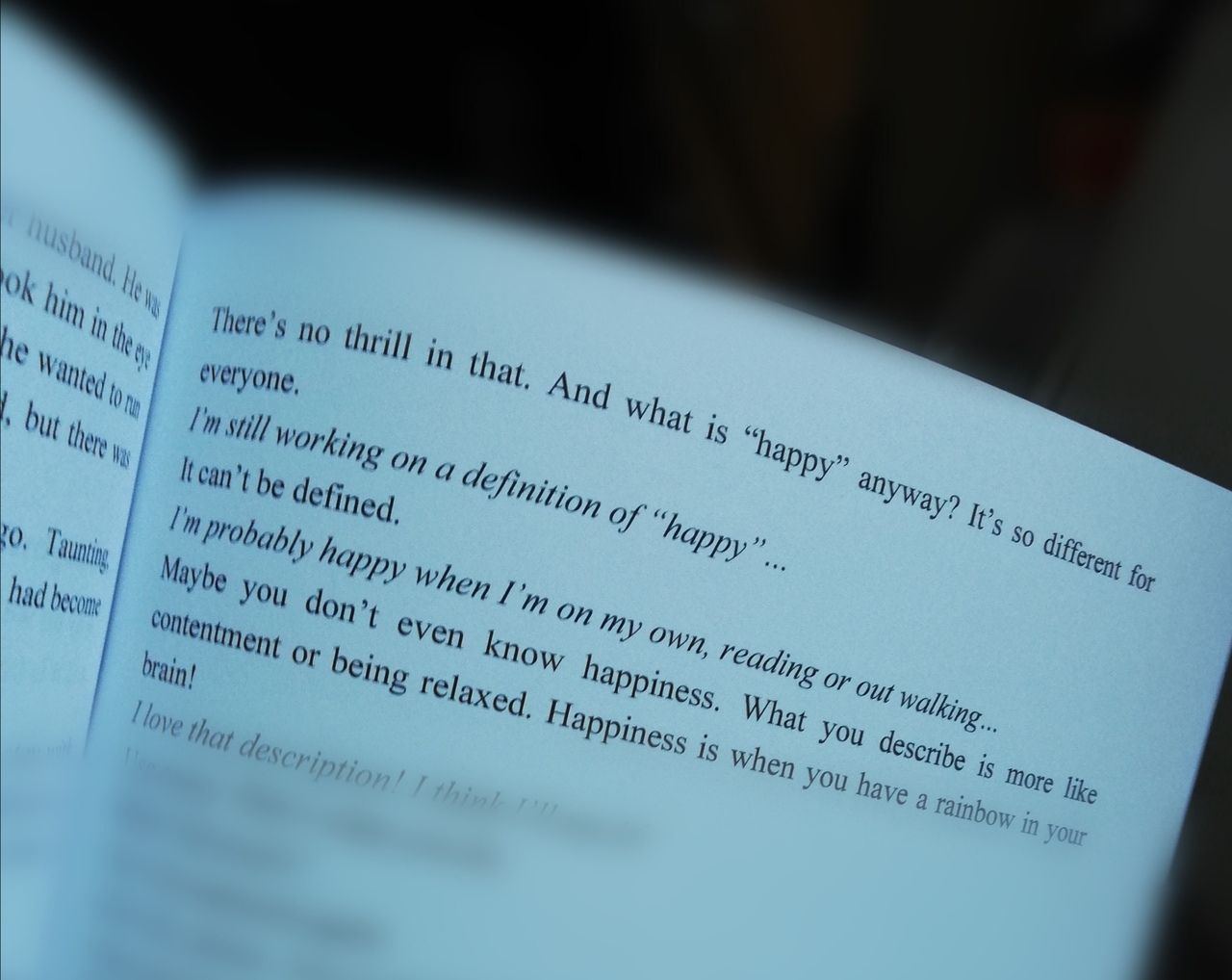
DEFINING HAPPINESS
Five or six years ago while I was on my afternoon break at work, a
colleague and friend came into the staffroom and out of the blue asked
me “are you happy?”
I replied without hesitation “define happiness,” thus prompting a very
quick exit stage left from said colleague who was obviously not in the
mood for a philosophical debate. The question and my answer has played
on my mind since and I even incorporated it into my book The Sum of all
Parts as the protagonist herself is dealing, in part, with finding her
own form of happiness.
My protagonist is striving for happiness but is still “working on a definition of happy”.
You see, happiness is very hard to define and can mean many different
things to many different people. According to my favourite (and ancient
dictionary) Virtues English Dictionary, Encyclopaedic Edition (Editors
Richard Ferrar Patterson, M.A., D.Litt. & John Dougall, M.A., D.Sc.)
to be happy is:
‘being in the enjoyment of agreeable sensations from the possession of good; contented in mind; highly pleased with one’s self and one’s position; satisfied;
fortunate; successful; secure of good; bringing or attended with good
fortune; prosperous; propitious; favourable; well suited for a purpose
or occasion; well devised; felicitous; apt; living in concord or
friendship.’
Quite a lot to take in I think you’ll agree. Happiness
is certainly hard to pin down and I think that is partly due to the fact
that it can be so closely intertwined with love. Happiness and love are slippery little buggers. Happiness – and, I’m sad to say,sometimes love
too – is fleeting, transient. It is something to be glimpsed only on
occasion. My protagonists’ ‘friend’ in The Sum of all Parts says
“happiness is when you have a rainbow in your brain” and I suppose
happiness is a bit like a rainbow in the sense that it is fleeting, it
appears suddenly to brighten our lives but tends to quickly fade away.
The
problem with happiness as I see itis that today’s culture is pushing it
as a definite given, we have a sense of self entitlement regards it.
And not only do we believe we are entitled to happiness, we are under
the misconception that once happiness is attained it will be with us
permanently. So we strive after it or simply expect it to drop in and
are then shocked when upon attaining some degree of happiness that it
disappears as quickly as it arrived. The result? We are more down in the
dumps than we were in the first place.
Happiness may not always be
achievable. We need to accept that happiness is hard to come by and even
harder to keep. Maybe instead of happiness we should instead, as my
narrator Thoughts in The Sum of all Parts suggests, strive for
contentment instead:
"Why do we as a species continually strive for
happiness? Happiness is elusive and it is transient. It is not a
sustainable emotion. Instead, we should be striving for contentment,
for our minds to be at peace. We should strive to be satisfied
with what we have and with our circumstances. We should be easy in our
minds and not complaining, opposing, demanding. A satisfaction of mind
without anxiousness or a craving for something else: this is what we
should be reaching for."
Happiness or contentment? A rainbow in our brain or peace and tranquillity? Now there’s a philosophical debate….
Post Views : 114